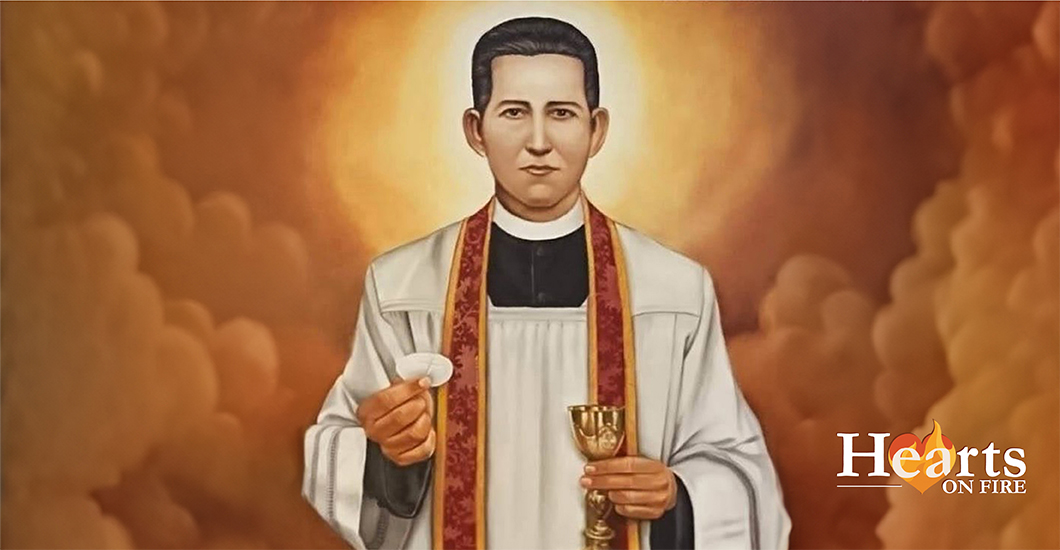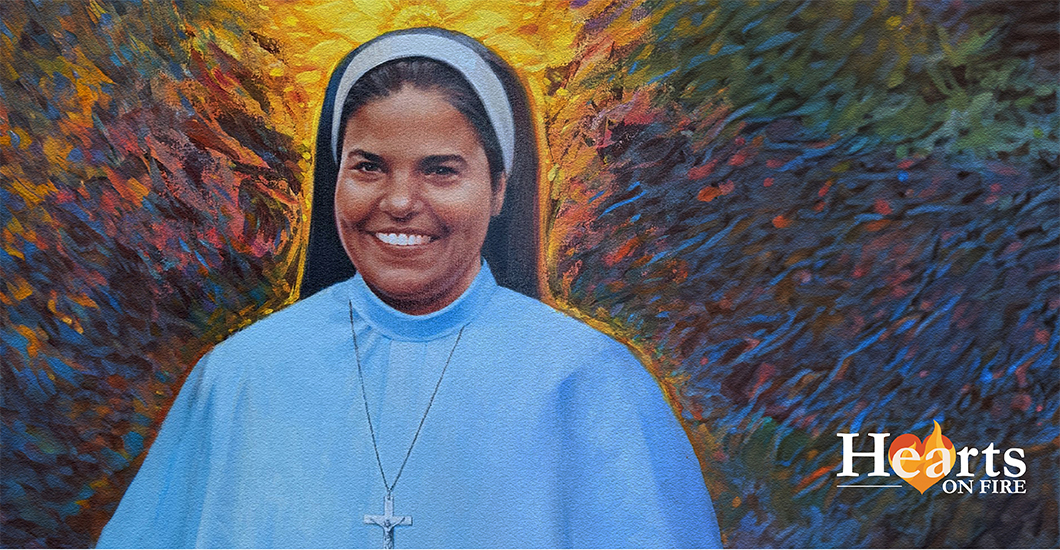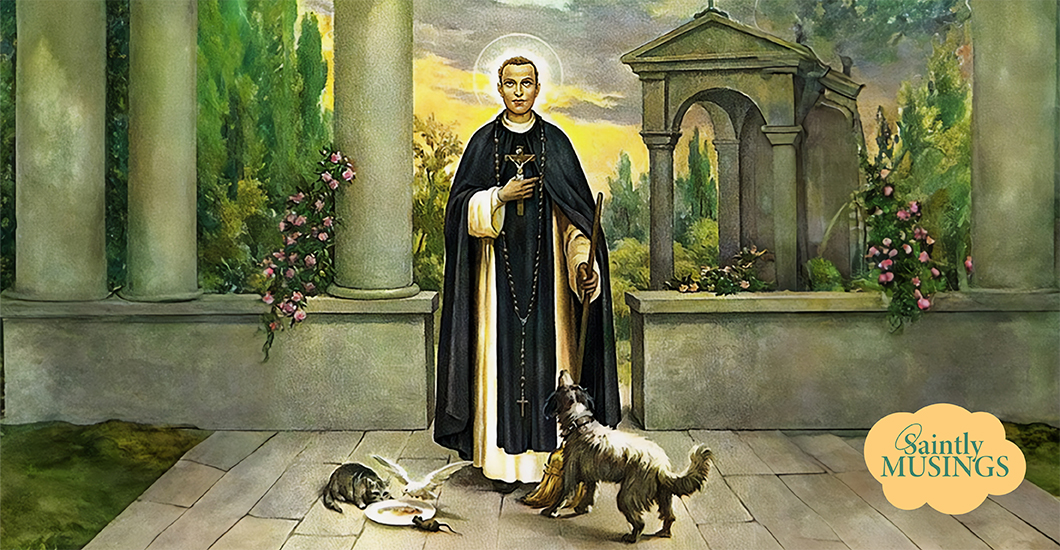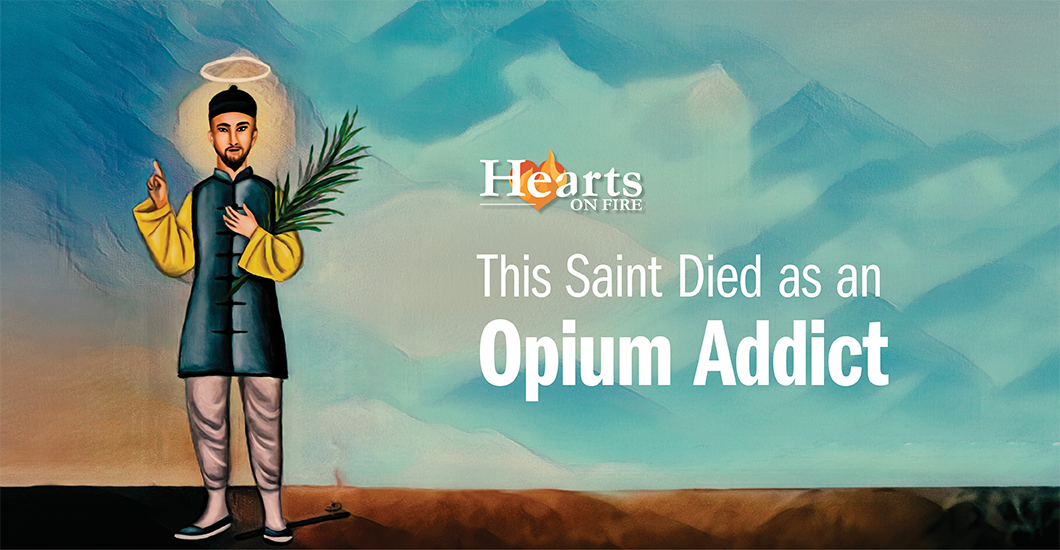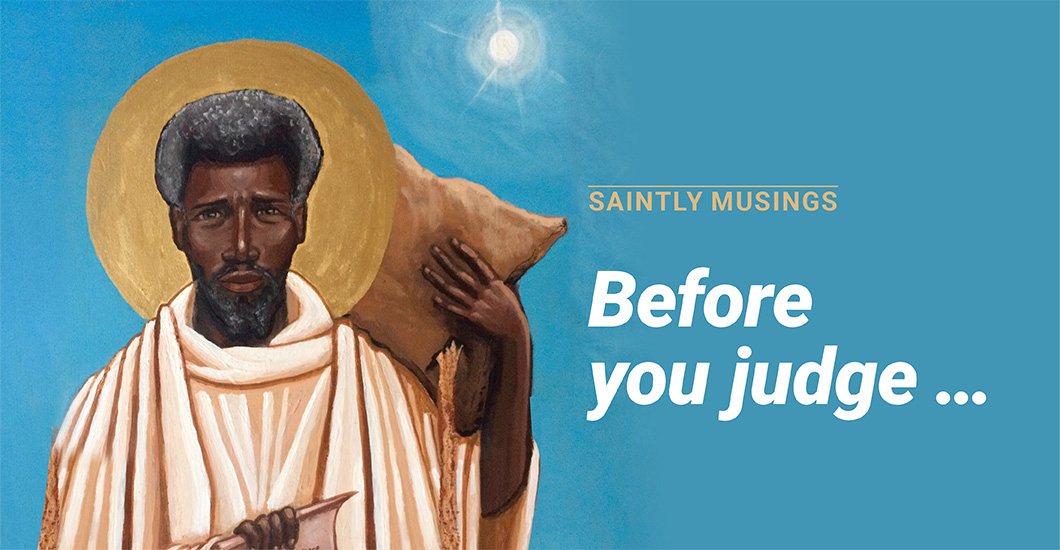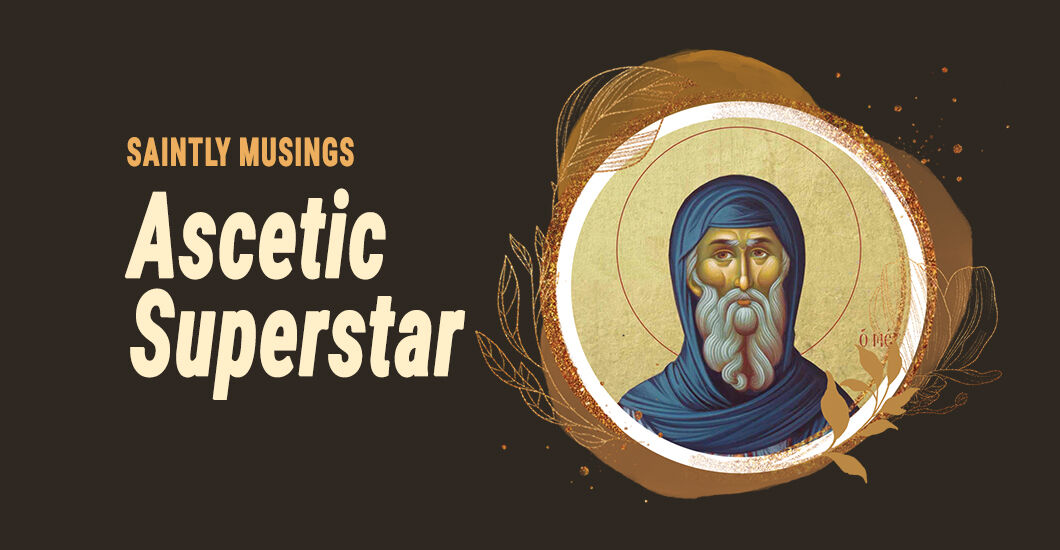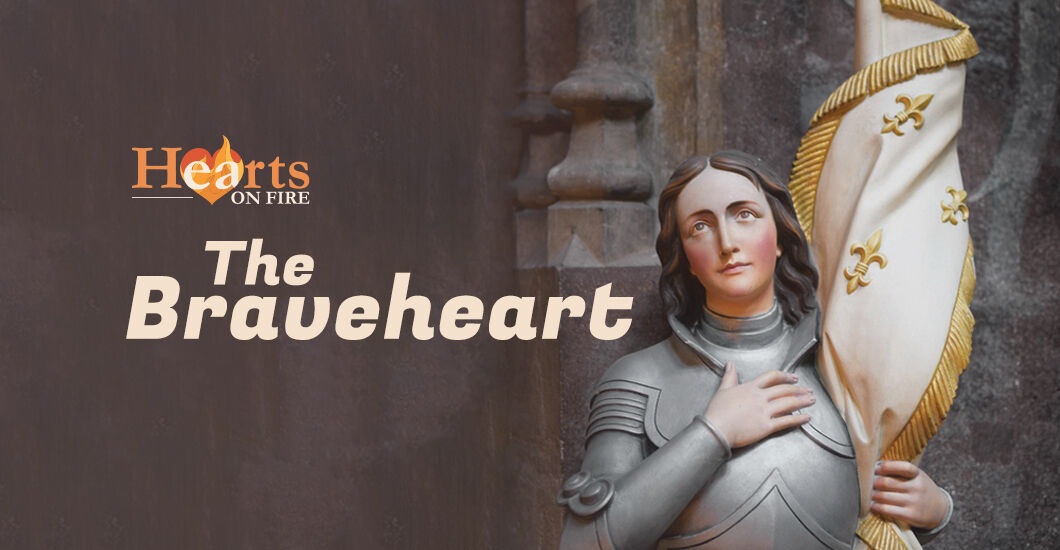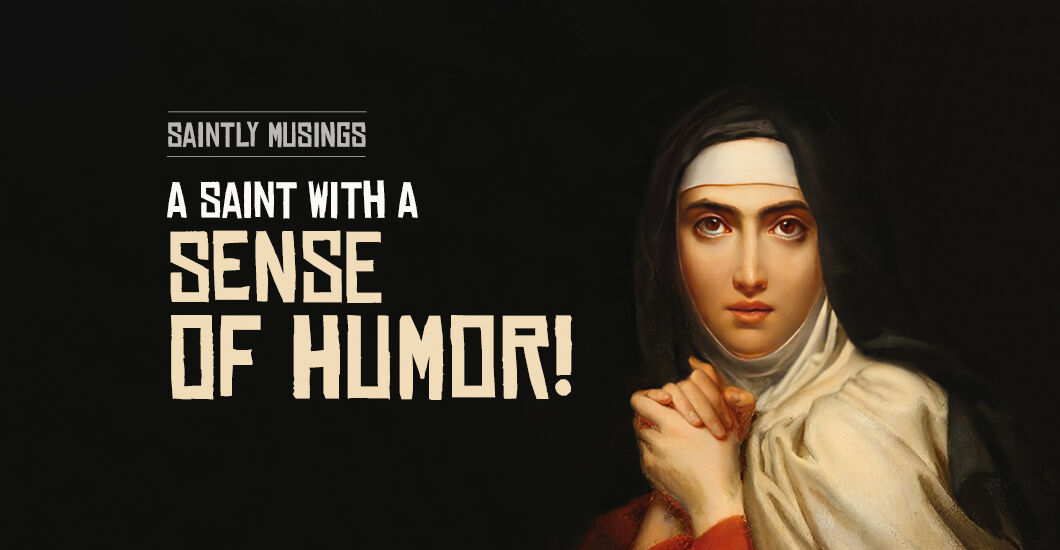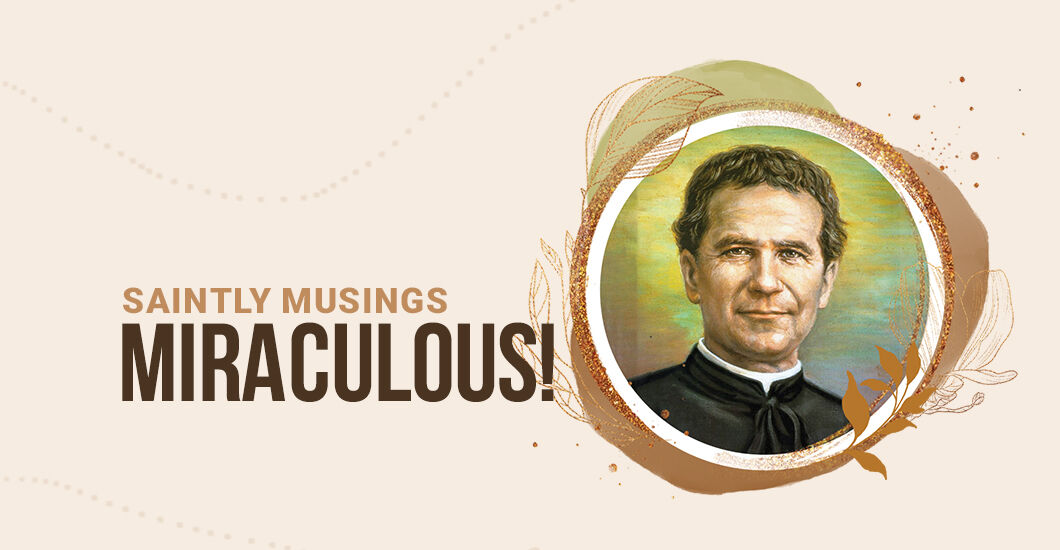Trending Articles
Hospitality for a Thirsty Rose
A pillar of Benedictine spirituality is hospitality. According to the Rule of Saint Benedict, everyone, without exception, is to be received as Christ. As a novice oblate of Saint Benedict about to make my final oblation, I was convicted of breaking this iron-clad rule by two strangers on the night of December 12, 2013, the Feast of Our Lady of Guadalupe. After praying the evening office, I had just settled down to meditate when the doorbell sounded a clarion call I felt compelled to answer. Peering through the peephole, I recognized the face of a fellow Legion of Mary member whom I was planning to see later that evening at our weekly meeting. Brother Jack lived miles from my neighborhood in the opposite direction—alarmed, I opened the door.
Instead of Jack, there stood a tall 30-something man with remarkably similar features but much longer, wavy brown hair reaching to his shoulders. In spite of the frigid weather, he was wearing only a long-sleeved black crewneck shirt and a striking gold cross that caught the porch light. His arms were at his sides, as if standing at attention, and his hands were empty. He smiled expectantly, his warm brown eyes silently regarding me through the glass of the unlocked storm door that still separated us, apparently waiting for me to open it and invite him in. I was too dumbstruck to speak—all I could do was smile back and, with flailing arms, motion him apologetically away. Instead of going away, his smile widened and, mimicking my gestures, he said, “What’s this? Signing? I can do that.” Feeling foolish, I shook my head and slowly shut the door. As it closed, he said reproachfully, “Thanks for your hospitality!” Ouch. I may as well have slammed the door in his face.
Where were my manners? What was I afraid of? Being taken away from something on my agenda or being asked to do something I did not want to do? Ashamed, I opened the door to call him back, but it was too late—the stranger had already vanished into the night, leaving no calling card or flyer in sight. I attempted to resume meditating, but my rhythm was off and my mantra, “Come, Lord Jesus,” rang hollow. Instead, I decided to visit the adoration chapel before my meeting, instead.
Contrite in His Holy Presence, I read, then re-read, Mother Teresa’s “I Thirst” meditation that someone had handed me earlier at Mass. Though I thirsted for Jesus, did Jesus really thirst for a sinner like me? Stretching out my arms toward the monstrance, I whispered: “Come, Lord Jesus, come back to me,” but it was already time to leave for my meeting. As I made a quick stop to my car, a middle-aged man bearing a bouquet of roses approached with a question in Spanish. Smiling apologetically, I explained that I did not speak Spanish—a convenient excuse for avoiding conversation. Then he asked in perfect English if I knew where he could get water for the flowers. Caught off guard, I shook my head and repeated my excuse—now an inexcusable brush off. As I turned away, he said reproachfully, “I speak all languages.” Nailed again! I wanted to turn around and ask for another chance, but I knew this was my other chance and I had blown it, big time. Ashamed, I fled to my meeting.
Why had I not been helpful? Why had I not suggested the restrooms in the building where I was headed? Of what was I afraid? Being late for a meeting I knew could easily start without me? Being judged unfavorably for tardiness? Though I arrived on time, a goal I had been working on recently, self-congratulations, seemed cheap, won at the expense of fragile flowers, obviously meant to honor Our Lady on her feast day. As I pondered both encounters on the way home, all my petty sins became magnified in the harsh light of my selfish neglect of those flowers. Did Jesus really thirst for a sinner like me? Parked in my driveway, I wept at the hardness of my heart. Upon entering my house, my spirits were lifted by the surprise of Christmas lights my daughter had strung in the foyer. A little flower had been added to a vase which, only hours ago, had contained a few sprigs of red berries. On closer inspection, it was a rose—a spotless red rose with a stunning head of velvety petals! My daughter confessed that a mysterious woman had dropped it at the metro station; before my daughter could return it, the lady had vanished into the rush-hour crowd. I said no worries. The tiny rose, an advent symbol of the baby Jesus—sprung from the root of Jesse through the stem of Mary—welcomed her hospitality, while I welcomed another chance to offer mine.
Over the next few weeks, I cared for the thirsty rose, replenishing its vase frequently, enjoying its sweetness and beauty. I also became a better servant of the moment, stepping up in an emergency to lead the next Legion of Mary meeting, offering a parishioner a ride home from Mass in an unexpected snowstorm and wishing a telemarketer a blessed evening, despite my interrupted prayer time.
On Epiphany Sunday, the day of my final oblation, the rose was still lovely, remarkably preserved after 24 days. Though still unworthy of the promise to dedicate myself to the service of God and others according to the Rule of Saint Benedict, I was ready to make it, renewed through my belief in the “Rose E’re Blooming’s” infinite thirst for a sinner like me.
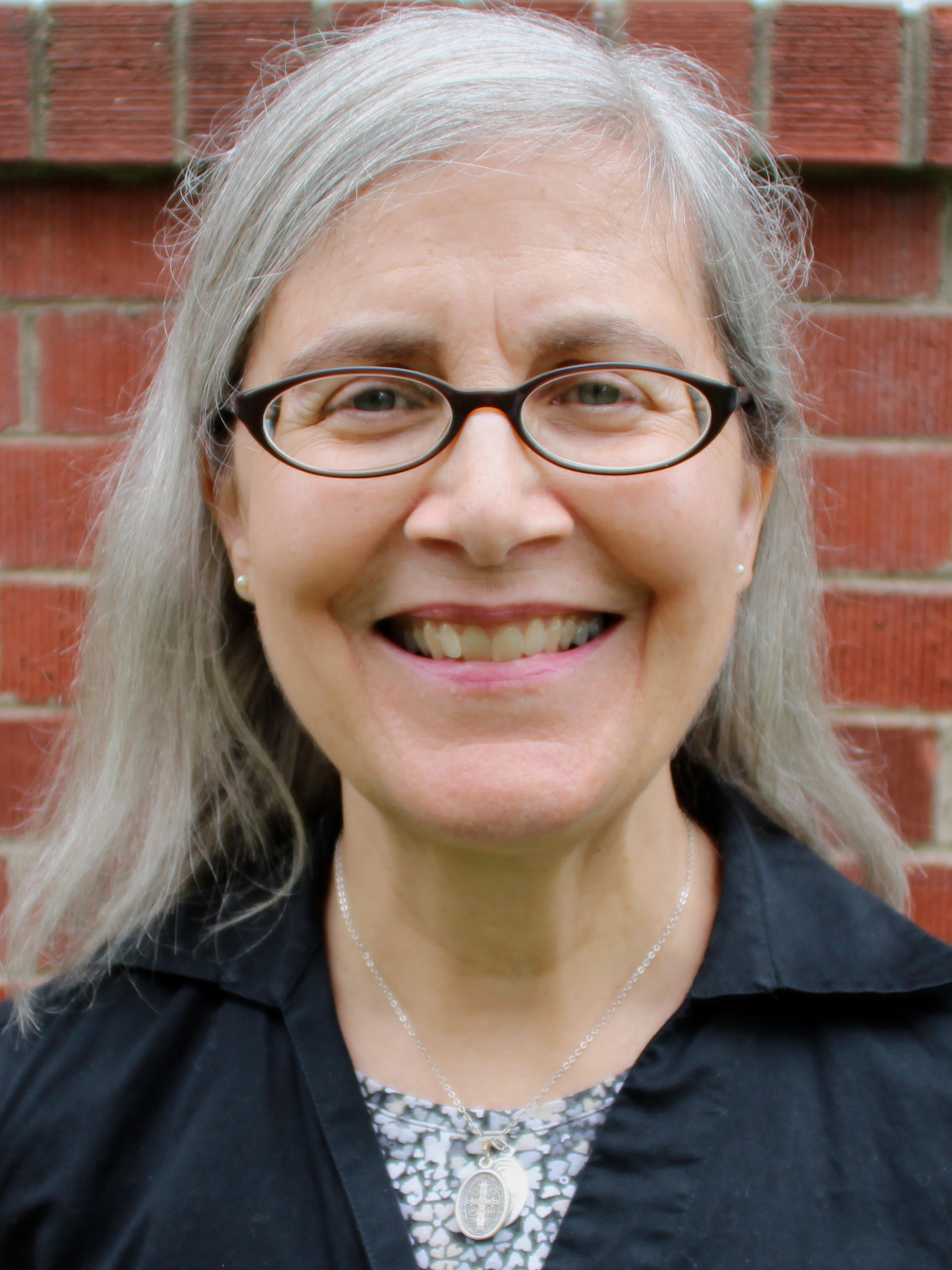
Donna Marie Klein is a freelance writer. She is an oblate of St. Benedict (St. Anselm’s Abbey, Washington, D.C.).
Related Articles
The Mexican Revolution which began in the early 1920s, led to the persecution of the Catholic community in that country. Pedro de Jesus Maldonado-Lucero was a seminarian at that time. Once he became a priest, despite the risk, he stood with his people. He tended to his flock during a terrible epidemic, founded new apostolic groups, reestablished associations, and ignited Eucharistic piety among his parishioners. Upon discovering his pastoral activities, the government deported him, but he managed to return and continue serving his flock, in hiding. One day, after hearing the confessions of the faithful, a gang of armed men busted his hiding place. Father Maldonado managed to grab a reliquary with Consecrated Hosts as they forced him out. The men forced him to walk barefoot throughout the town, as a crowd of the faithful followed him. The city mayor grabbed Father Maldonado's hair and dragged him toward the city hall. He was knocked to the ground, resulting in a skull fracture that popped out his left eye. He had managed to keep his grip on the pyx until this time, but now it fell out of his hands. One of the thugs took some Holy Hosts, and as he forcefully stuffed the hosts inside the priest’s mouth, he shouted: “Eat this and see if He can save you now.” Little did the soldier know that just the night before, during the Holy Hour, Father Maldonado had prayed that he would happily give his life for an end to the persecution ‘if only he would be allowed to take Communion before his death.’ The thugs left him for dead in a pool of his own blood. Some local women found him still breathing and rushed him to a nearby hospital. Father Pedro Maldonado was born into eternal life the next day, on the 19th anniversary of his priestly ordination. Pope John Paul II canonized this Mexican priest in 2000.
By: Shalom Tidings
MoreRani Maria Vattalil was born on 29 January 1954 to Eleeswa and Paily Vattalil in a small village called Pulluvazhy, in Kerala, India. From a young age, she was brought up in the Christian faith, having love for the poor. She attended daily Mass and led family prayers. During the final year of high school, Rani felt the Lord calling her to consecrated life and entered the Franciscan Clarist Congregation in 1972. It was Rani Maria’s ardent desire to do missionary work in North India and serve the poor, even if it cost her life. She was sent to Madhya Pradesh (a central Indian state) and served several mission areas there. Sister Rani Maria was given the responsibility of coordinating the social apostolate of the local diocese. She organized various educational programs for children and young people and worked relentlessly to empower the indigenous people. She understood how the poor, illiterate farmers were exploited and taken advantage of by their landlords. So, she educated them on their rights, helped them fight for justice, and spoke for those who were unjustly imprisoned. All this infuriated the upperclass landlords, who threatened her with dire consequences if she continued supporting the cause of the poor. But Rani Maria feared nothing and did not back down from her mission to 'love her neighbor.' A devious plan was then hatched by those who hated her. On 25th February 1995, while traveling by bus, she was mercilessly stabbed 54 times by Samundhar Singh—a man hired by the landlords. She breathed her last, repeating the Holy name of Jesus. Rani Maria worked her entire life to fight for the dignity and rights of her fellow men and bore witness to the Gospel through her social activities. Sister Rani Maria’s family, following the valiant example of their daughter, forgave her murderer wholeheartedly, even inviting him to their home! This act of mercy touched him deeply; he repented of his heinous crime and became a changed man. Sister Rani Maria was beatified by Pope Francis on 4th November 2017.
By: Shalom Tidings
MoreMartin de Porres was born in 16th-century Peru; he grew up facing the stigmas of both his mixed race and illegitimacy. After a barber-medical apprenticeship in his young years, he joined the Dominicans as a ‘lay helper’ and continued his barber work in the monastery. One day, Brother Francis Velasco Carabantes approached Martin, desiring to talk to this man whom people were already starting to believe was saintly. Martin was busy with his barber work; he absent-mindedly grabbed this novice and placed him in the barber’s chair. Brother Francis had no inclination to have his head shaved; he disliked the hairstyle that the Dominicans used. Before he could resist, Martin had finished his job, and Brother Francis was angry beyond expression. He started to shout, calling Martin all sorts of curse words. Martin was lost in prayer, and by the time he noticed that this novice was shouting, one of the rectors had seen the commotion and was scolding Brother Francis, who was severely punished and sent away. Martin, once he came to realize what had happened, went to the rector with all possible excuses. He begged forgiveness for this person who had verbally abused him, trying even to explain away the curse words used. Finally, he told the rector: “Everyone knows what a sinner I am.” The rector, who was aware of Martin’s saintly life, gave in to his request and forgave Brother Francis. Not satisfied with this, Brother Martin even sent fresh fruit, which was a rare delicacy in the monastery, to Brother Francis. How many times have we rejoiced in the ‘just’ punishments that our transgressors received? Let us pray to Saint Martin for the virtue of humility, to forgive and show the other cheek, as Jesus taught us to do.
By: Shalom Tidings
MoreOn a scorching afternoon on the streets of Calcutta, I met a boy… Prayer is an undeniable, central, and key part of every Christian’s life. However, Jesus emphasized two more things which clearly went hand in hand with prayer—fasting and almsgiving (Matthew 6:1-21). During the seasons of Lent and Advent, we are specifically called to commit more time and effort to all three ascetic practices. ‘More’ is the important word. Whatever season we are in, radical self-denial and giving are a continuous call for each baptized believer. Around eight years ago, God literally made me stop and think about it. Unexpected Meeting In 2015, I had the great privilege and blessing of fulfilling a lifelong dream to be with and serve some of the most in-need brothers and sisters worldwide in Calcutta, India, where the poor are described not only as poor but the ‘poorest of the poor.’ From the moment I landed, it was as though electricity was running through my veins. I felt such immense gratitude and love in my heart to be given this amazing opportunity to serve God with Saint Mother Teresa’s religious order, the Missionaries of Charity. The days were long but absolutely action-packed and grace-filled. Whilst I was there, I did not intend to waste a moment. After a 5 AM start to each day with an hour of prayer, followed by Holy Mass and breakfast, we set off to serve at a home for the sick, destitute, and dying adults. During the break at lunchtime, after a light meal, many of the religious brothers I was staying with took a siesta to recharge their batteries, to be ready to go again in the afternoon and on into the evening. One day, instead of having a rest in the house, I decided to go for a walk to find a local internet café, to contact my family by email. As I turned one of the corners, I encountered a young boy aged around seven or eight years old. His face expressed a mixture of frustration, anger, sadness, hurt, and tiredness. Life had already seemed to have begun to take its toll on him. He was carrying over his shoulder the biggest transparent, heavy-duty plastic bag that I had seen in my life. It contained plastic bottles and other plastic items, and it was full. My heart broke within me as we stood silently examining one another. My thoughts then went to what I could give this young boy. My heart sank, as I reached for my pocket, realizing that I only had a small amount of change with me to use for the internet. It added up to less than one pound in English money. As I gave it to him, looking him in the eye, his whole being seemed to change. He was so lifted and grateful, as his beautiful smile lit up his beautiful face. We shook hands, and he walked on. As I remained standing in that back street of Calcutta, I stood in awe as I knew that the Almighty God had just personally taught me such a powerful life-changing lesson through this encounter. Reaping Blessings I felt God had beautifully taught me in that moment that it is not the actual gift that is important but the disposition, intention, and love from the heart with which a gift is given. Saint Mother Teresa beautifully summed this up saying, “We cannot all do great things, but we can do small things with great love.” Indeed, Saint Paul said, if we give away all we have “but have not love,” we gain nothing (1 Corinthians 13:3). Jesus describes the beauty of giving, that when we “give… it will be given to you; good measure, pressed down, shaken together, running over, will be put into your lap. For the measure you give will be the measure you get back.” (Luke 6:38). Saint Paul also reminds us that “Whatever a man sows, that he will also reap” (Gal 6:7). We do not give in order to receive, but God in His infinite wisdom and goodness blesses us personally in this life and also in the next when we step out in love (John 4:34-38). As Jesus taught us, “it is more blessed to give than to receive” (Acts 20:35).
By: Sean Booth
MoreThe Chinese Boxer Rebellion in the 1900s killed nearly 32,000 Chinese Christians and 200 Western Missionaries. Among these devoted Christians who gave their life for their faith, Saint Mark Ji Tianxiang stands out because, at the time of his death, he was an opium addict who had not received the Sacraments for 30 long years. Ji was raised in a devout Christian family, and he was a respected and charitable doctor in his community. Fate be blamed, the opium he took to abate a disturbing stomach ailment took hold over him, and he was addicted to it in no time. Though he went to frequent Confession, Ji found himself in the grips of a powerful addiction that refused to succumb to any means of resistance. His parish priest and confessor eventually told him that he could not continue to repeat the same sin in Confession anymore. Confession requires a conscious resolve to repent and sin no more, and this repeated sin, in the 19th century, was not understood as an illness. He was henceforth restricted from receiving the Sacraments, but he continued visiting the Church and stayed true to the Lord’s ways. He remained sincere to his faith because He believed in a Merciful Father. Many assumed that he would be the first to deny the Lord when faced with the threat of persecution. But along with his son, grandchildren, and daughters-in-law, he persevered till the very end. In fact, Ji provided spiritual consolation to his fellow Christians as they were imprisoned and awaiting execution. Stories record that as they were dragged to prison, his grandson, shaking with fear, asked him, “Grandpa, where are we going?” He calmly and jubilantly answered: “We’re going home.” He went to his death, singing the Litany of the Blessed Virgin Mary. Pope John Paul II canonized him in the year 2000.
By: Shalom Tidings
MoreEver heard of a robber who turned into a Saint? Moses the Black was a leader of a band of thieves who attacked, robbed, and murdered travelers in the Egyptian desert. The very mention of his name spread terror in people’s hearts. On one occasion, Moses had to hide in a monastery and was so amazed at the way he was treated by the Monks that he converted and became a monk! But the story doesn’t end there. Once, four of the robbers of his former band descended upon the cell of Moses. He had lost none of his great physical strength, so he tied them all up. Throwing them over his shoulder, he brought them to the monastery, where he asked the Elders what to do with them. The Elders ordered that they be set free. The robbers, learning that they had chanced upon their former ringleader and that he had dealt kindly with them, followed his example: they repented and became monks. Later, when the rest of the band of robbers heard about the repentance of Moses, they also gave up their thievery and became fervent monks. After many years of monastic struggles, Moses was ordained deacon. For another fifteen years, he continued his monastic labors. About 75 disciples gathered around the saintly Elder, who had been granted the gifts of wisdom, foresight, and power over demons by the Lord. Once, a certain brother committed an offense in Scete, the camp of the monks. When a congregation was assembled to decide on this matter, they sent for Abba Moses, but he refused to come. Then they sent the priest of the church to him, imploring, “Come, for all the people are expecting you,” and finally, he responded to their pleas. Taking a basket with a hole in it, he filled it with sand and carried it upon his shoulders. Those who went out to meet him asked, “What does this mean, O Father?” And he replied, “The sands are my sins, which are running down behind me, and I cannot see them. Yet, I have come here today to judge shortcomings that are not mine.” When they heard this, they set that brother free and said nothing further to him.
By: Shalom Tidings
MoreAt the age of 20, Anthony lost his parents and was left with a large inheritance and the responsibility of caring for his sister. About the same time, Anthony happened to hear a reading from the Gospel of Matthew, where Jesus tells a rich young man, "If you want to be perfect, go and sell everything you have and give the money to the poor." Anthony believed he was that rich young man. Shortly after, he gave away most of his property, sold almost everything else, and kept only what he needed to care for himself and his sister. But that’s not exactly what the Lord had commanded! Not long afterward, Anthony was at Mass once again and heard the Gospel passage, “Do not worry about tomorrow; tomorrow will take care of itself” (Matthew 6:34). Again, he knew Jesus was speaking directly to him, so he gave away even the little he had saved, entrusted his sister to the care of some holy women, and entered the desert to live a life of poverty, solitude, prayer, and mortification. In that harsh desert landscape, the devil attacked him in countless ways saying “Think about all the good you could have done with that money you gave away!” Firm in prayer and mortification, Anthony fought off the devil and his manifestations. Many were attracted to his wisdom, and these he encouraged to seek self-denial and the hermetic life. No wonder after his death he became Saint Anthony the Great or Saint Anthony of the Desert, the father of Christian Monasticism. Once a brother renounced the world and gave his goods to the poor, but he kept back a little for his personal expenses. He went to see Abba Antony. When he told him this, the old man said to him, "If you want to be a monk, go into the village, buy some meat, cover your naked body with it and come here like that." The brother did so, and the dogs and birds tore at his flesh. When he came back the old man asked him whether he had followed his advice. He showed him his wounded body, and Saint Antony said, "Those who renounce the world but want to keep something for themselves are torn in this way by the demons who make war on them."
By: Shalom Tidings
MoreFew Saints of the Catholic Church have captured the popular imagination like Joan of Arc. Her story is depicted in paintings, sculptures, and numerous films. Born into a peasant family in 1412, Joan grew up illiterate, but acquired a profound love for the Church and a deep faith in God from her mother. Because she loved prayer and the sacraments, her neighbors said, “She was so good that all the village loved her.” She cared for the sick and homeless, often even giving them her own bed. By the age of thirteen, Joan began to hear the voices of Michael the Archangel, Saint Margaret of Antioch, and Saint Catherine of Alexandria. They told her she was to liberate France and ensure the French heir to the throne was installed as France’s rightful king. She won his trust by telling him details of his past only someone with divine knowledge could know. At the time, France was dominated and ruled by England. Convinced that her “voices” came from God, Joan heroically and faithfully obeyed their instruction, despite obstacles and suffering. Prayer and contemplation remained primary in her life even as she led battles, during which she never raised the sword against an enemy Though two years earlier a commission had “declared her to be of irreproachable life, a good Christian, possessed of the virtues of humility, honesty and simplicity”, Joan was accused of witchcraft and heresy after the English captured her, receiving no support from the very King she put on the throne. At her trial, Joan manifested her deep faith and wisdom, and despite being wrongly condemned, she never lost her faith in God or the Church. When she was burned at the stake, she proclaimed the name of Jesus while holding a crucifix to her heart, causing an observer to say, “We have burned a saint.” Her death increased her fame and popularity. Twenty years later, a new trial declared her innocent of all her alleged crimes. After her reputation grew over the centuries to epic proportions, Joan was beatified in 1910 by Pope Pius X and canonized eleven years later by Pope Benedict XV. She is now the patron Saint of France and one of the Church’s most beloved Saints. Joan’s obedience to God ensured France kept the Catholic faith during the Protestant Reformation while England abandoned it. France remained a solid center of Catholicism from which it would spread to northern Europe.
By: Shalom Tidings
MoreThe river had swelled so high that water covered everything and all sense of where the road or footpath might be was purely a guess. With water everywhere, it seemed foolish to advance, especially in a carriage, for if anyone strayed ever so little off the road, they would perish without a doubt. As her companions panicked, Sister Teresa encouraged them, “As we are engaged in God’s work, how could we die in a better cause?” She then led the way on foot to the convent through the fierce storm. Suddenly she slipped down an embankment and fell squarely into the mud. Instead of complaining or cursing, the irrepressible nun, looked to the sky and quipped, “If this is how you treat your friends, no wonder you don’t have many!” The sixteenth-century Saint and Doctor of the Church, Teresa of Avila, didn’t take herself or this world too seriously and brushed off the little hardships of life with a sense of humor. Her ability to humbly recognize her own faults and need for grace was also tinged with her refreshing humor. In her autobiography, Teresa writes, “Having virtuous and God-fearing parents would have been enough for me to be good if I were not so wicked.” Saint Teresa was also mindful of false piety and once said, “From silly devotions and sour-faced saints, good Lord, deliver us!” A healthy and good sense of humor will keep our head straight and enable us to see the world’s true beauty. Did God say that we need to be “sour-faced” to be holy? So, if you want to become a saint, lighten up, share the joy of the Lord and laugh with your friends like Jesus did.
By: Shalom Tidings
MoreMaria Stardero, a 12-year-old girl, was led by her aunt into the church where dozens of boys were standing about or kneeling in prayer as they waited for Don Bosco to arrive for confessions. As she made her way to a pew, some of the boys noticed that the young girl’s eyes had no corneas and resembled white marbles. When Don Bosco arrived, he asked the girl about her condition. She had not been born blind, she told him, but because of eye disease she had completely lost her sight two years earlier. When he inquired about medical treatment, her aunt began to sob. They had tried everything, but doctors had only one thing to say: “It is incurable!” “Can you tell whether things are big or small?” Don Bosco asked the child. “I can’t see anything.” He led her to a window to see if she could perceive light, but she couldn’t. “Would you like to see?” Don Bosco asked. “Oh, yes! It’s the only thing I want,” said the girl, breaking down in tears. “Will you use your eyes for the good of your soul and not to offend God?” “I promise I will, with all my heart!” “Good,” said Don Bosco. “You will regain your sight.” After recourse to Mary, Help of Christians, Don Bosco recited the Hail Mary and blessed the girl. Then holding a medal of Mary Help of Christians before the girl’s eyes he asked, “For the glory of God and the Blessed Virgin, tell me what I’m holding in my hand.” “She can’t . . .” the elderly aunt began, but Don Bosco paid no heed. After a few seconds, the child shouted, “I see!” Immediately she described the medal in great detail. But when she stretched out her hand to receive it, it rolled into a dark corner. The aunt moved to retrieve it, but Don Bosco motioned her back. “Let her find it to see if the Blessed Virgin has thoroughly restored her sight,” he insisted. Immediately, the girl walked to the dark corner and bent down to retrieve the tiny object. As the many witnesses looked on, awed and profoundly moved, Maria, thanked Don Bosco profusely and with sobs of great joy. Entrust everything to Jesus in the Blessed Sacrament and to Mary, Help of Christians and you will see what miracles are! Saint John Bosco
By: Shalom Tidings
MoreLatest Articles
Do you know how to battle the storm that obstructs your way? We all want control and we all want freedom. We want to be able to grasp the course of our lives. It is easy to fall into the trap of desiring this control we can never have. We cannot go back and change the past, and we cannot direct the future exactly as we please. It is also too easy to reduce this desire to a lack of trust in God or a lack of concern for His own will, but often, we may desire this control because we think it will help us serve God best. We get sucked into a cycle of worry because we are trying to please God. But do we stop to see what He has to say about such a thing? Tormenting Past As a university student, I find myself too often worrying about doing everything right. I am actively trying to discern God’s will for my life during such a pivotal time (which, of course, is a good thing), but sometimes to the point that I am too worried if I am failing to properly follow His will or if I am seeking to control and direct my life instead of letting God lead. The irony here is clear retrospectively but can be unnoticeable at the moment. I find myself stressing about the past, wishing I could go back and find answers to the problems I both endured and created. The result is a cycle of painful questions–Why did I say that? Why did this person do this? What does it all mean? Did I learn the right lesson? Why did somebody else get something I wanted? I am always trying to find a solution, trying to take back control, trying to figure out what others are doing right that I am not. But sometimes, all we need to do is let go. Recently, I attended a Sisters of Life* retreat where we learned about imaginative prayer, a spiritual exercise where you use your imagination to place yourself in a scene and let God speak to you. At the same time in my life, I was preparing for training as a sailing instructor, another thing that left me worried as I sought to predict how the course would turn out. Would I succeed? If I didn’t, all my summer plans would be ruined, and I would have no job. What would I do then? What if the other trainees passed and I didn’t? The Bible story my imagination immediately turned to was the story of Jesus calming the storm on the ocean while the disciples were in the boat. I placed myself into the scene. Sailing through the Storm I vividly saw in my mind the boat I had always grown up sailing, the harbor where I spent countless hours practicing, and I saw the storm I had been caught in my first days sailing all those years ago. When the wind is powerful enough, it fills the sails and tilts the sailboat to its side. The skipper must lean back over the side to flatten the boat or release the mainsheet (the rope used to control the sails), all while continuing to clutch the tiller (steering instrument) and direct the boat with just one hand. Fighting currents and fighting wind, it takes all your strength and willpower as the waves are splashing over the side and the wind whips your eyes, bringing you to tears. Fighting to hold onto everything and prevent the boat from flipping over can become an impossible task. It was then, in my prayer, that Jesus began to walk across the water toward me. He reached out His hand for me to grasp. If I reached for His hand, I would have to let go of one of the controls I was using to keep my boat moving. I continued to cling to the mainsheet and the tiller, my hands cramping, the wind tearing my eyes and my hair, leaning back so far that my back nearly touched the water in an impossible gymnastic move. He waited for me. I let go of the rope holding the sail and took His hand. It was then that the pressure on the sail from the wind was released. The boat slowed and flattened until it came to a stop and merely bobbed in the waves, sails flapping in the breeze, with no risk of tipping over. Jesus climbed into the boat. Offer it up Like a patient, loving Father and friend, He directed me when I was ready to take up my course again and keep going now that the pressure and anxiety were released. Sometimes, we don’t have to keep trying to find a solution, fighting to hold everything together, sometimes, all we need to do is let go of the past, our problems and give them to God. Then, we'll just need to take up our course and begin again. After having the time for that prayer, I attended Mass, and the homily confirmed the message placed in my heart. The Gospel was about when Peter asks Jesus what is going to happen to John, and Jesus replies: “What concern is it of yours?” The priest emphasized how Peter’s path was very different from John’s. Jesus not only told Peter not to worry about John but also clarified who he should focus on; He said: "You follow Me.” Peter, of course, went on to be the leader of the Church and now has the most famous basilica in Rome named after him. The week following the retreat, I had my sailing training and not only passed but also was offered a job opportunity for future summers. What was I so worried about? That, along with the other problems and mistakes of the past that I was clinging to, just needed to be let go of to find peace. This does not mean avoiding dealing with problems at all; rather, it allows us to take a step back before returning to the situation, and often, a solution reveals itself. Sometimes, it does mean letting go of problems we cannot solve, like questions about the past or the future. Jesus wants to bear our burdens with us. When we place our trust in Him and leave our worries at the foot of the Cross, solutions are inevitable. *Sisters of Life, based in North America, is a Catholic religious community that follows Augustinian rule and promotes pro-life.
By: Sarah Barry
MoreI’m no longer trapped…I found my way. Living with Complex Post-Traumatic Stress Disorder (CPTSD) is an ongoing journey that has greatly shaped my relationship with God and deepened my faith. For many years, I was tormented by nightly nightmares, a relentless reminder of past traumas that seemed inescapable. My sleep was frequently interrupted by vivid and distressing dreams that left me emotionally drained and spiritually desolate. However, a pivotal moment in my life—my Baptism—marked the beginning of a significant transformation. The nightmares ceased, but my journey of healing was far from over. CPTSD, unlike its more widely recognized counterpart PTSD, arises from prolonged exposure to trauma, often during childhood. There is no cure—just the management of symptoms. This condition manifests in various ways—emotional flashbacks, hypervigilance, chronic feelings of emptiness, amnesia, and an impaired sense of self. For me, these symptoms translated into a constant state of anxiety and a pervasive sense of disconnection from the world around me. Yet, amidst these challenges, I came to see how this condition has made me uniquely aware of my own emotions and deeply empathetic and protective towards the struggles of others. Signs & Symptoms When the nightmares stopped after my Baptism, I felt that a heavy burden had been lifted, and I could finally rest. In fact, the very first words I heard God speak over me immediately after my Baptism was: “I will give you rest.” This miracle was a tangible sign of God's grace and a testament to the power of the sacrament. However, while the most debilitating symptom was alleviated, other symptoms persisted, which I believe were opportunities to draw closer to God. The phrase: "I will give you rest" (Matthew 11:28) is commonly interpreted as an invitation to physical rest, a respite from the demands and labors of daily life. In this context, it resonates with those who are weary and burdened, promising them a moment of peace and tranquillity. However, a deeper exploration of this passage reveals that its meaning can be understood more as an invitation to find spiritual rest in God, even amidst the most turbulent times and challenges of life. The imagery of rest as a spiritual state can be likened to the experience of a warrior in battle. In the heat of conflict, a soldier may not find literal rest, but through faith and reliance on God, they can experience a sense of peace and assurance. It means that even when we are engaged in the battles of life, we can find a deep-seated rest in God’s presence that transcends our circumstances. When we consider the life of Jesus, we see that He experienced extreme challenges and turmoil, yet He was able to remain at peace. Mark 4:35-41 recounts the story of Jesus calming the storm. While the disciples were terrified by the raging winds and waves, Jesus slept peacefully in the boat. His calm amid the storm serves as a powerful illustration of what it means to rest in God. When He woke up, He rebuked the wind and the waves, demonstrating His authority over creation and teaching us that true rest is not the absence of storms but the presence of Christ in our lives. Fighting with Hope In times of personal battle—whether it be battling the remnants of trauma, confronting fears, or facing life’s uncertainties—finding rest in God means choosing to lean on Him for strength, guidance, and reassurance. It involves surrendering our anxieties and burdens to Him, trusting that He will provide what we need to endure and overcome. The rest He offers is a deep peace that can coexist with our struggles, allowing us to navigate life's challenges with hope and resilience. Furthermore, the call to rest in God invites us to cultivate a deeper relationship with Him, one that transforms how we engage with our circumstances. When we actively seek His presence in prayer, scripture, and community, we begin to experience the essence of that rest. It becomes a source of strength that carries us through difficult times, empowering us to face our battles with a renewed spirit. The journey towards healing is not a straightforward path, but it is filled with moments of grace and encounters with God’s love. I believe that God has a purpose for allowing my condition to persist; I understand that my weaknesses are a conduit for God’s strength. If I were completely healed, I might be tempted to rely solely on my own strength and drift away from the closeness I now share with God. My struggles are a blessing that keep me grounded in my need for God’s grace, reminding me of His constant presence in my life. In the words of Romans 5:3-5: "We also boast in our sufferings, knowing that suffering produces endurance, and endurance produces character, and character produces hope, and hope does not disappoint us, because God’s love has been poured into our hearts through the Holy Spirit that has been given to us." My journey with CPTSD is a testament to the enduring hope and transformative power of God's love.
By: Fiona McKenna
MoreIt was the year 387, when Monica saw seventeen years of her fervent prayers in tears being answered. She was overwhelmed with joy upon seeing her wayward son Augustine getting baptized by Saint Ambrose in Milan. Soon, they left for Africa, where she fell ill due to the land journey. While in Ostia, Monica announced that she did not want to sail back to North Africa and instead preferred to remain in Ostia until her death. Her sons were surprised to learn their mother’s decision because they were hoping to take her back to her homeland. She told them she wanted them to remember her at the Lord’s altar, wherever they were. Through this statement, Monica made it clear that remembering her at the Mass was way more important than her burial location. When Monica knew she was nearing her death, she revealed to Augustine: “Son, nothing in this world now affords me delight. I do not know what there is now left for me to do or why I am still here, all my hopes in this world being now fulfilled.” A few days later, she fell seriously ill, and her soul breathed the last. Respecting her wishes, Monica was buried in Ostia but soon her body was moved to a hidden crypt in Santa Aurea in the 6th century. Later, Saint Monica’s tomb was transferred to the Basilica of Sant'Agostino in Rome. Monica, the patron Saint of Mothers, truly believed that she would be close to her sons during the celebration of the Holy Eucharist. Her unwavering faith in Christ is a profound example that shows prayer without ceasing and hope without doubting shall bear fruit one day.
By: Shalom Tidings
MoreDo you know how to handle little things that drive you nuts? The other day, I misplaced my car keys when I was in my office building, which is a huge place. It has a large first floor with many side rooms, an enormous basement, and various offices upstairs. There were so many places my keys could have been since I went up and down the stairs all day long. Saying a quick prayer, I retraced my steps, trying to remember where I laid my keys down. After walking around for a while, I suddenly remembered where I might have put them and ran upstairs to one of the offices. Sure enough, there were my car keys. Thank you, Jesus! I find that there is always a lesson lurking in the day's events—if I stop and reflect. Just as parents are alert for and use ‘teaching moments’ to educate their kids, so, too, does God use teaching moments to form us. They are often small grievances, for example, driving all the way to the store and realizing you forgot your wallet. Or worse, getting to the checkout with your cart full of groceries before you realize you don’t have your wallet. Or locking your keys in your car—and worse, seeing that you also locked your cell phone in there! Seeking Fervently… These small events can cause frustration and anger, or we can choose to see them in the light of God's training and disciplining us. If we choose the second option, we can say: “Okay, Lord. I choose to praise You and thank You because Ephesians 5:20 says: ’Giving thanks to God the Father at all times and for everything in the name of our Lord Jesus Christ.’” When we lose our keys and are searching for them, we can say: “Thank You, Lord, for this trial of inconvenience.” As fervently as I am seeking for my keys, I want to fervently be seeking You. “Your face, Lord, do I seek.” (Psalm 27:8) If we can perceive God's loving hand in allowing these things to happen so that they can help train and discipline us, then we can smile and even laugh at daily annoyances. This is something that a priest taught me. Father Jack used to call his guardian angel ‘Laughing Boy’ because of these kinds of little mishaps. If he locked himself out of the car, missed a ride, or couldn't find a paper he needed, Father Jack would say: “Laughing Boy is at it again!” And he would chuckle. Father Jack had learned and taught us an important lesson–don’t take yourself too seriously. The ability to laugh at yourself and at the little grievances of the day helps to keep a smile on your face, and then you will radiate joy to those you meet. Remember, there is always a lesson. Take time to ponder and say: “Okay, God. Here I am. What are You trying to teach me in the events of this day?” Then look at how you responded. Did you learn something and grow in virtue, or did you react badly? Don't worry if you fail. There will be more pop quizzes tomorrow.
By: Ellen Hogarty
More



